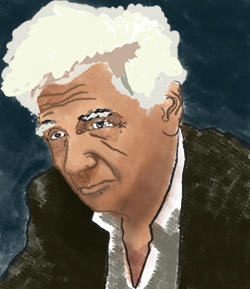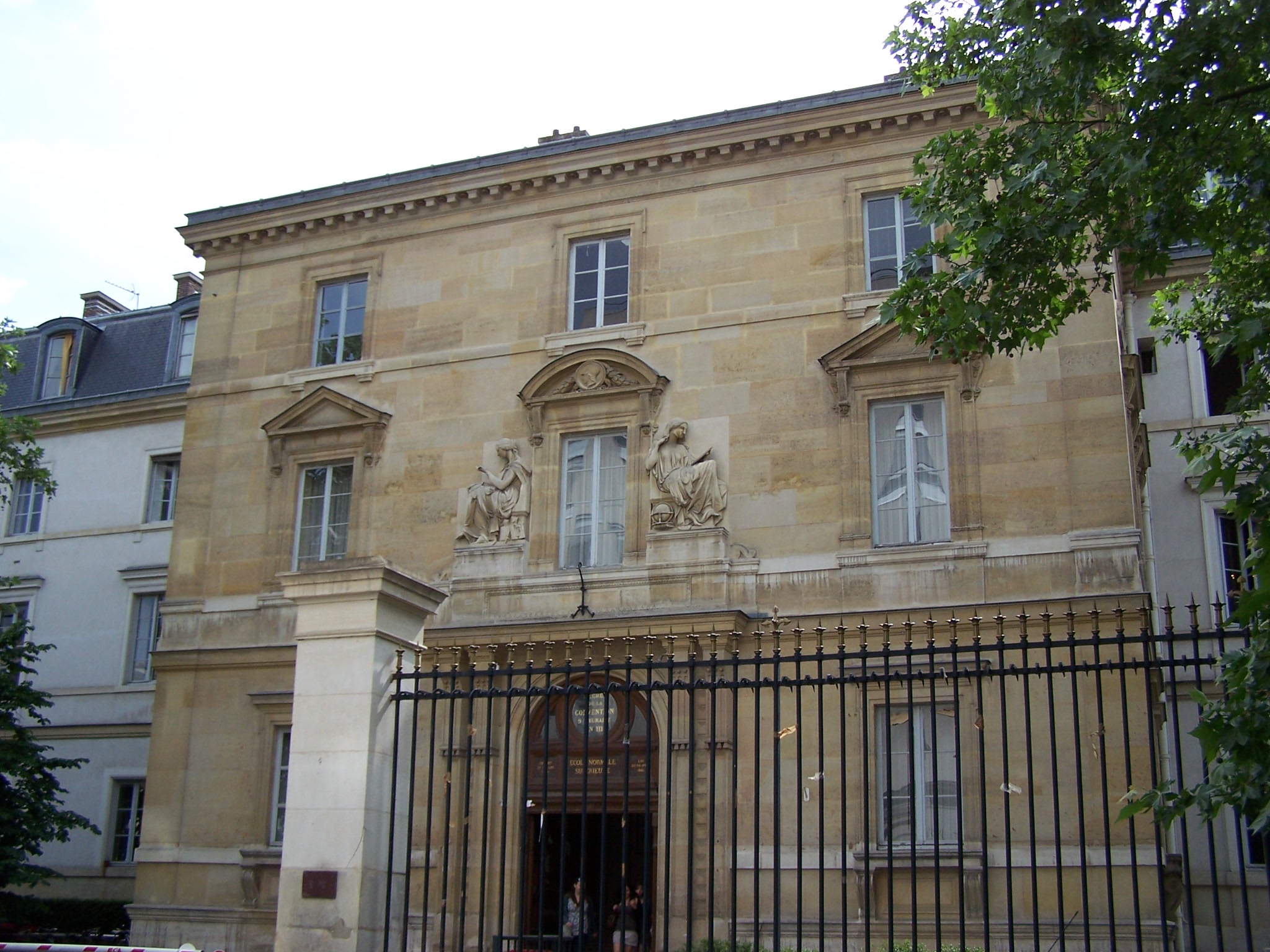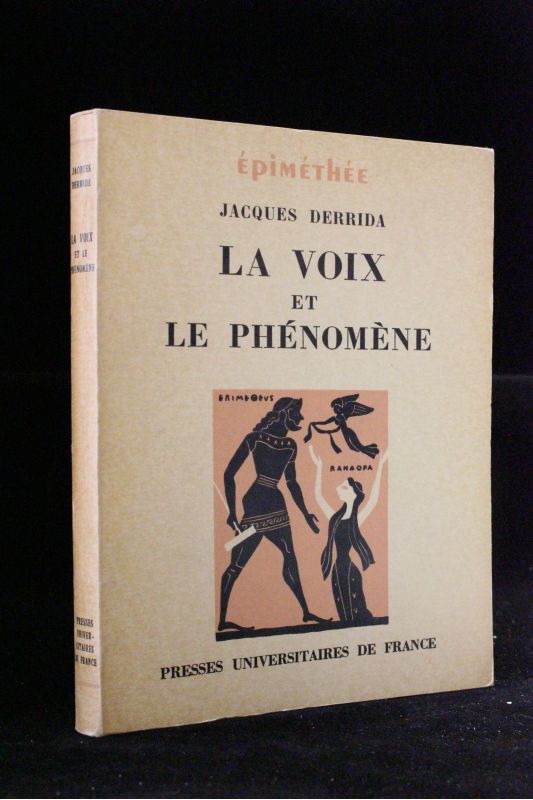It was at the ENS that Derrida first encountered philosophy and thinkers such as Edmund Husserl, who would have a major impact on him. Derrida fell in love with philosophy, went deeper and deeper, particularly into Husserl’s phenomenology. Phenomenology is the idea that we can put the question of whether the world exists to one side – it may or may not exist, but Husserl didn’t want to spend all his time going down that path. He wanted to know what the world felt like: if I encounter a table, how does it feel to me? Taste, smell, touch, description. For Husserl, philosophy was description, and Derrida throughout his life remained a phenomenologist of sorts. He wanted to describe what the world was like, how it felt to be in the world and he thought it was more complex than many other people did. In fact, Derrida said famously, if things were simple, word would have gotten around.
Peter Salmon
The experiences that formed philosopher Jacques Derrida
Novelist and biographer Peter Salmon, talks to us about the life and work of the philosopher Jacques Derrida.Key Points
- • All of the identities mixed together in Jacques Derrida brought about experiences that made him realise that identity is arbitrary and can be imposed on a person from the outside.
- • Derrida moved from Algeria to France, where he found life in Paris difficult; however, after he was accepted into the prestigious École Normale Supérieure, he encountered and fell in love with philosophy, particularly phenomenology.
- • Derrida undermined structuralism in a 30-minute speech in Baltimore, and published three highly influential books of philosophy in 1967.
Jacques Derrida in pop culture
There was a point during the 1980s and 1990s when Jacques Derrida was the most famous philosopher in the world. Not only had people who studied philosophy heard of Jacques Derrida, but he’d become part of popular culture. Some of the things he said, such as, ‘I dream of a pen that is a syringe’, or ‘There is nothing outside the text’, or ‘I have nothing to say about love’, became famous around the world, slogans almost.
I grew up in Australia. Jacques Derrida appeared on popular culture shows, magazine shows; the sorts of shows that would tell you about celebrities and new security systems, that would have infomercials and then Jacques Derrida talking about deconstruction.

An image of the deceased French philosopher Jacques Derrida. 4 August 2009. By Pablosecca. Wikimedia Commons. Public Domain.
Derrida’s upbringing
Derrida was born in Algeria in 1930, a key year in Algerian history. It was 100 years since France had taken over Algeria. He was a French citizen. He grew up learning the French language, French geography and French history whilst living in Algeria. He was also Jewish, and these two identities didn’t necessarily go well together at the time. He was surrounded by an Arab population and because he was dark-skinned, he would often be mistaken by the French for an Arab. All of these identities were mixed together in Jacques Derrida in the same way that all of us have many identities mixed together.
For Derrida, however, this was absolutely crucial for him then and throughout his life, this mixing of identities, this lack of being able to define oneself. When he was 13, an incredibly traumatic event happened, probably the most traumatic event in his youth – and he certainly referred to it as that.
A defining trauma in youth
In 1943 under Vichy France, Derrida was expelled from school after a quota system was introduced. He was then sent to a Jewish school with Jewish teachers who had also been kicked out of the Algerian schools. For Derrida, this was a crucial moment, not necessarily because he was labelled as Jewish. Any label would have been difficult – although Jewish was more complex at that time, of course – but for him, this was a moment where he realised that identity was arbitrary, that it could be imposed on you from outside.
Certainly, we create lots of our own identities from inside, although Freud would have a bit to say about that. From outside, arbitrarily, the government, the nation, the State had said, you’re Jewish, you must do this. Then one year later, the war shifted, and that was no longer the main issue. He got his French citizenship back. Throughout his life, Derrida grappled with this idea of identity and of truth, the arbitrariness of all of those things and how difficult it was for someone to make their own identity, to have it imposed from the outside.
Truth and identity in dispute
Many of his later writings about refugees and borders and so forth reflect this, but it’s also reflected in his philosophy: this idea that truth and identity are in dispute, that they’re never settled and that any settled version of it imposed from outside is an act of violence – to call something the truth, or to call your identity that. All of Derrida’s philosophy, in a sense, flows from this.
One of the dangers of looking at someone’s life, particularly a philosopher of the genius of Derrida, is to try and say that everything that he thought was somehow reliant on what had happened to him. That’s not the case for any of us, of course, but in Derrida’s later work, he takes this on as an idea. Much of it is autobiographical, because for him, philosophy was one type of narrative, in the same way that literature and religion are each one type of narrative. Once you’ve made that step, then you want to look at who’s generating the philosophy, who’s generating the religion. For Derrida, it was an intensely personal matter, and the construction of his self, his identity and his philosophy came back to many of these events that happened in his childhood and youth.
France and l’École Normale Supérieure
Derrida moved to France, “the over there”, as he used to call it, the place he was supposed to feel at home, the place of the history he’d learned, of the language he had – but, as he later said, he had one language and it was not his own. It was the French language. Like for all of us, it was a language imposed from outside. He was miserable in Paris for the first few years, but then he went to l’École Normale Supérieure, the ENS.

Main entrance to the École Normale Supérieure. 11 May 2011. Wikimedia Commons. Public Domain.
Derrida’s divergence from Husserl
Derrida identified a problem with Husserl. He wasn’t the only person to identify that problem; however, he ran with the ball. For Husserl, you had to have a vantage point in which to look at the world. Derrida said that vantage points cannot exist. Time continues to move forward; everything keeps happening. We cannot be out of the system in order to look at the system. Derrida’s insight at that point, when he was very young, was that this was true of all philosophy – that philosophy had this idea that you could stand outside the world in order to describe the world. He called it the metaphysics of presence.
Now, this was an idea he had very early; however, it took a very, very long time before he was able to get this idea out into the world. It was a very, very long time before Derrida was recognised. In fact, his miracle year in 1967 was at the age of 37, and for 15 years he’d been writing about Husserl. Many people who encountered Derrida, particularly in the English-speaking world, think that he leapt fully formed onto the world stage in 1967.
The conference in Baltimore
The other key moment in Derrida’s life was in 1966 at a conference in Baltimore. The conference was to introduce America to structuralism, this hip new philosophy that had come out of France. Structuralism basically said that to understand something, you need to look at where it fits into a structure. To understand a word, you look at where it fits into language; to understand a culture, you look at where it fits into other cultures around it; to understand some of the myths within a culture, you look at where they fit in with all the other myths. Structuralism had some great thinkers: Lacan, Foucault and so forth. What happened next is almost out of a Hollywood movie. One of the people who was supposed to speak at the conference pulled out, and the result was, is there a philosopher in the house? Derrida was flown in and literally gave the last paper at the conference. We can see it as a Hollywood movie, him moving up to the lectern, shuffling his notes and beginning to speak. He spoke for about 30 minutes, and by the end, structuralism was pretty much dead. In fact, some of the people attending the conference said that their life’s work was over, because Derrida had gotten rid of structuralism and moved on to what would later be known as post-structuralism.
Laying waste to the structuralist project
What Derrida did was identify a fault with a structuralist project. The structuralist project said that there was a web, a structure into which things fell. Take something like religion: to look at aspects of religion, you look at where it fits into that structure. However, the thing that guarantees religion, the thing that guarantees that structure, is God. Now, God cannot fit into that structure. God needs to stand outside that structure. So, the thing that is most important about the structure isn’t part of the structure. If you look at something like philosophy, the thing that guarantees philosophy is truth. Yet, truth stands outside that structure. If God arrives tomorrow, religion ends. If truth arrives tomorrow, philosophy ends.
So, in giving this paper in Baltimore, Derrida laid waste to the structuralist project and invented post-structuralism and what would become known as deconstruction. As he had earlier with Husserl, saying that there was no vantage point from outside in which you could view things, Derrida had said that about all these things within philosophy, within religion, within culture – that the thing guaranteeing it could not be part of it. Thus, he was already thrust onto the world stage. What happened next was almost miraculous. He released three of the most influential books of philosophy of the 20th century in one year, in 1967.
The books of Derrida published in 1967

First edition of Voice and Phenomenon, PUF, 1967, coll. Epimetheus, 2 January 1967. Photo by Slojkine. Wikimedia Commons. Public Domain.
The three books were Of Grammatology, Writing and Difference, which was a collection of essays, and Voice and Phenomenon. Voice and Phenomenon is one of his most difficult works, but it gets to the heart of what Derrida was trying to do. Again, looking at Husserl, Husserl had said that the voice in our head was our self – our soul, if you like – and that as soon as we spoke, words were contaminated. If we wrote them down, they were contaminated even more because they could be passed around and misunderstood. Errors could be made. The model that Husserl had of normal speech was: I have an idea in my head. I turn it into words and say it. You hear those words, you put that into your head and you have the thought that I was transferring. That could be done more or less well, but it could never be done perfectly. Thus, like many philosophers, he thought that writing was worse than speech and speech was worse than thought. Derrida said none of that is true. We don’t actually have a thought in our head that we transfer into language and then say. This was not how things worked, and, like with most of his philosophy, he also said that’s not a problem. It’s something to be explored and the implications teased out.
Derrida: a true philosopher?
One of the questions about Derrida that’s often asked is, was he, in fact, a philosopher? Some of his critics don’t think he was. There are a few reasons for this: first of all, because he is wilfully difficult. He doesn’t explain things in the way that philosophers are supposed to. He thought that any sort of language was a decision and therefore clarity of the sort that philosophers tend to deal in was also a decision. By making a decision to be clear, you were making a decision about what philosophy was trying to discover.
He had a much wider remit in this. If necessary, he would use religious texts in his philosophy; he would use autobiography; he would use poetry; he would talk obliquely; he would use some of the tactics of novel writing in order to get his ideas across. This made a lot of philosophers very angry, and the hostility towards Derrida during his lifetime was quite intense. In fact, some people have compared it to the way Socrates was treated. And there are similarities between Derrida and Socrates – this constant questioning of truth, this way that corrupted youth. In fact, there was a letter written to The Times when he was offered a doctorate at Cambridge, saying that he was no philosopher. He was given the doctorate, but there still remained suspicion around his work, and that suspicion goes on today.
What is crucial about this is, I think, to go back to Derrida himself and to look at the work he did with philosophy, his earlier work on Husserl, and you will see someone who, far from denigrating philosophy, loved philosophy, who read it as closely as it’s possible to read it. Yes, he said the truth was in dispute, but one of the beauties of truth being in dispute was it continued to generate philosophy. He loved that – and Derrida is one of the great philosophers because he loved philosophy.
Discover more about
Derrida’s life
Salmon, P. (2020). An Event, Perhaps: A Biography of Jacques Derrida. Verso Books.
Salmon, P. (2017, January 30). Derrida vs. the Rationalists. New Humanist.
About Peter Salmon
Discover more EXPs
Here's how we use cookies
To give you the best experience, we tailor our site to show the most relevant content and bring helpful offers to you.
You can update your preferences at any time, at the bottom of any page. Learn more about how your data is used in our cookie policy.